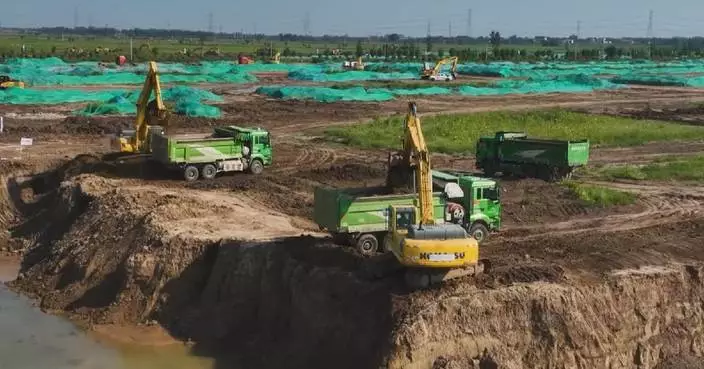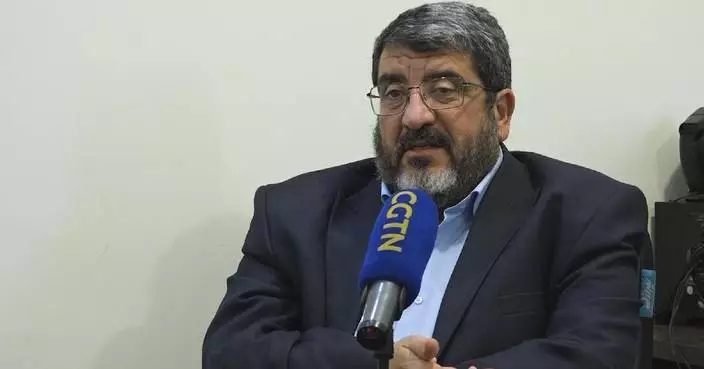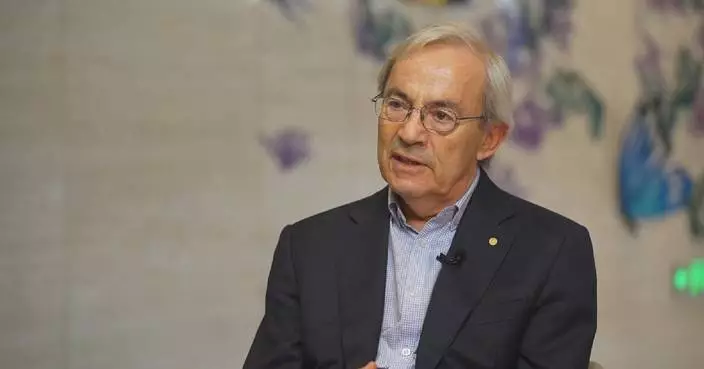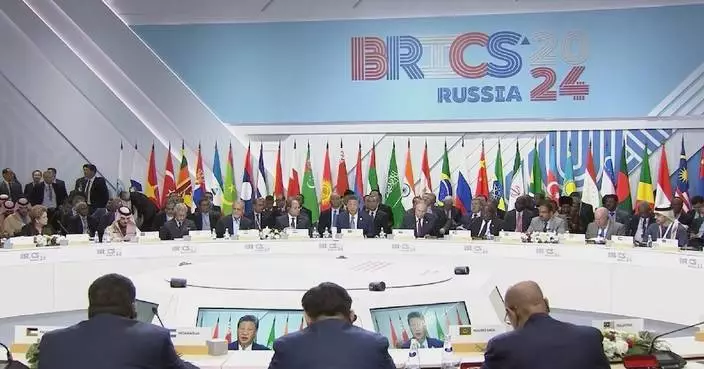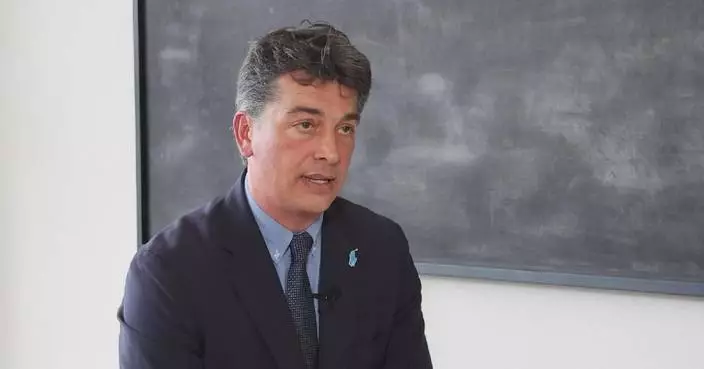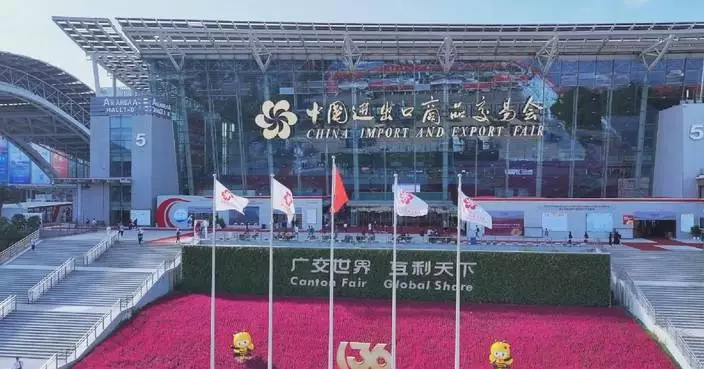A team from one of the world's leading botanic gardens, the Kew Gardens in London, has just visited the Chengdu Botanic Garden in southwest China, pledging further cooperation.
It was led by the Kew Gardens director, Richard Deverell, who first visited Chengdu, the provincial capital of Sichuan, 36 years ago.
The Chengdu Botanic Garden has collected more than 5,000 species of living plants. The comprehensive botanical garden integrates species conservation, scientific research and tourism services. With rich species diversity, Sichuan Province has been considered the origin and evolution base of plateau species.
Sichuan is home to over 14,000 species of higher plants, accounting for one third of the total across China. In Chengdu, there are more than 4,000 species.
Botanical gardens play a pivotal role in preserving plants in critical danger and contribute to biodiversity. China and the UK have come a long way in these efforts.
Richard Deverell was impressed by the diversity of the region when he visited Chengdu 36 years ago. This time, he found differences and commonalities.
He said it's warmer in Chengdu than in Britain, so many plants can be planted outside. In his country, many plants have to be kept in glasshouses.
"Kew estimates there are about 350,000 species of plants around the world, higher plants. And perhaps 40 percent of those are at some risk of extinction. So Kew is very proud of its partnerships with China. We've had a long term partnership with the Chinese Academy of Sciences, for more than 20 years. And I hope with Chengdu specifically, we can do some more work on plant collecting trips in Sichuan," said Deverell.
British Consul-General in Chongqing Anthony Preston expected more international collaboration to protect biodiversity in the future, and more involvement of ordinary people.
"I think that starts with young people at school, but continues through all different parts of society. So if we want to have a prosperous, healthy, positive future, we need to make sure that we are balancing our lives with that of the natural environment," said Preston.
The two sides also discussed further cooperation in the exchange of plant germplasm resources, research projects and personnel visits.
For Sichuan, one of the provinces with most abundant vegetation in China, international cooperation is an important way to contribute to biodiversity worldwide.
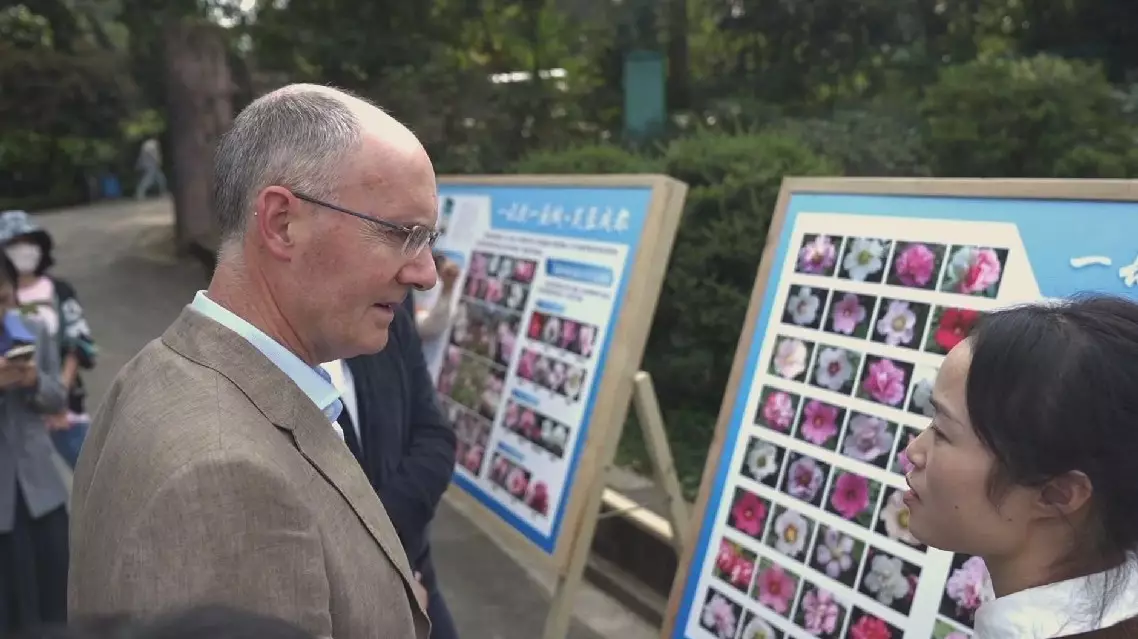
Kew Gardens director expects more biodiversity cooperation with China
Various voices from the international community strongly endorsed Chinese President Xi Jinping's remarks at the 16th BRICS Summit, emphasizing China’s commitment to high-quality development, enhanced BRICS cooperation, and solidarity within the Global South.
Xi attended the 16th BRICS Summit from Tuesday to Thursday in Russia's Kazan, where he also held in-depth discussions with world leaders on BRICS cooperation, bilateral relations, and the current international situation.
During the summit, Xi elaborated on the direction and fundamental principles of greater BRICS cooperation, emphasizing that BRICS nations had gathered in pursuit of shared goals. He called for joint efforts to make BRICS a primary channel for strengthening solidarity and cooperation among Global South nations, as well as a vanguard for advancing global governance reform.
Alexander Babakov, deputy chairman of the Russian State Duma, emphasized the significance of Xi's proposals for BRICS, noting their clarity on key points crucial to the cooperation mechanism's future.
"I believe that President Xi's proposals have clarified several points that are extremely important at this stage for the future of the BRICS cooperation mechanism," he said.
"President Xi Jinping delivered a landmark speech in which he called upon the world community to work together for the security of all, development of all, and progress of all," said Sudheendra Kulkarni, founder and former chairman of the Forum for a New South Asia.
Dennis Munene Mwaniki, executive director of the China-Africa Center at the Africa Policy Institute, said that the vision for inclusive development resonated particularly strongly with African perspectives.
"President Xi Jinping has been pushing [the idea] that all humanity needs to enjoy high-quality development. No one should be told that they don't deserve that. So by bringing [together] the greater BRICS and pushing for the greater BRICS, this is going to show that [as] more countries join BRICS, more countries get to enjoy the benefits," he said.
Former Kyrgyz Prime Minister Temir Sariyev drew parallels between Xi's Global South initiatives and the Belt and Road Initiative, emphasizing China's willingness to share its modernization experience and promote common development.
"President Xi Jinping said in his speech that China cares about the 'Global South' and is willing to move forward together with developing countries in the Global South. I think this is similar to the Belt and Road Initiative (BRI) proposed by China. China has rich experience in modernization and is willing to help, share achievements, invest, and open up to provide learning opportunities for other countries. This shows that China's policy is not to seize other countries' interests but to promote common development for all," Sariyev said.
In the academic sphere, Professor Rashed Al Mahmud Titumi of the University of Dhaka highlighted China's consistent efforts in promoting South-South collaboration through platforms like BRICS.
"President Xi has been driving South-South Collaboration for quite some time. And BRICS is one of those Chinese initiatives where they are trying to promote a shared prosperity. Because the world, and particularly the developing world, is struggling [in] their modernization drive because they want to see a recovery that is shared by its citizens," he said.
International observers also noted the significance of Xi's proposals for improving global governance.
"Since Xi Jinping became the Chinese President, he has tried to promote multilateralism in the world through various initiatives, including the Belt and Road Initiative and the expansion of the Shanghai Cooperation Organization (SCO) and BRICS. This is his attempt to enable sovereign states to play a bigger role," said Alireza Shiravi, director general of the Foreign Media Department at the Ministry of Culture and Islamic Guidance in Tehran.
Willy Meyer Pleite, former Member of the European Parliament, emphasized the importance of Xi's vision for new international relations based on peace, cooperation, and fair trade.
"I think President Xi highlighted in his speech the importance of establishing a new model of international relations based on peace and cooperation, with a focus on sustainability and trade cooperation. The BRICS members offer an alternative concept, which is a commitment to multilateralism with respect for fair trade for all people in different countries," he said.
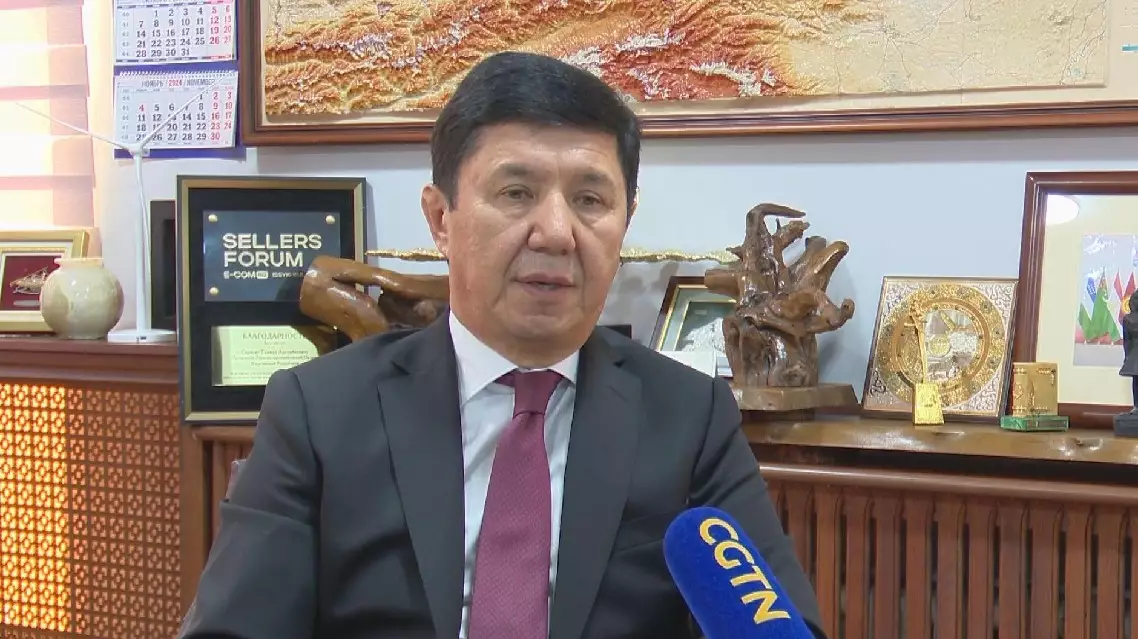
Int'l community lauds Xi's vision for greater BRICS, Global South solidarity




